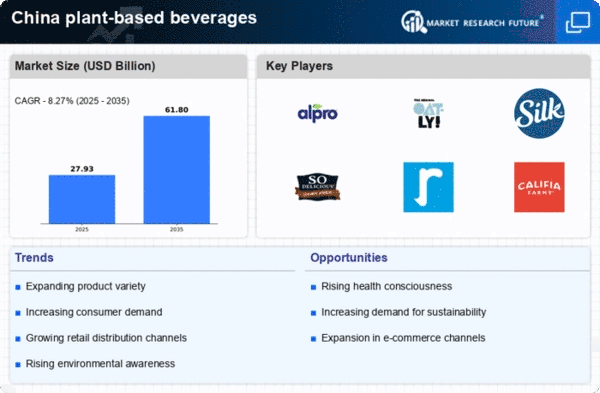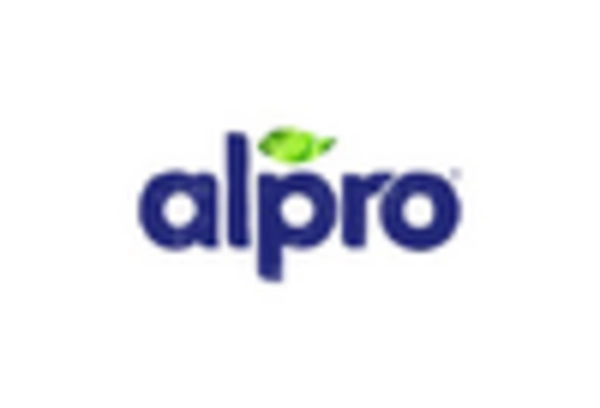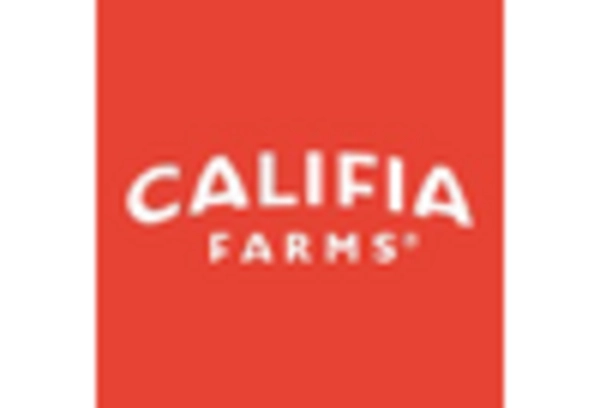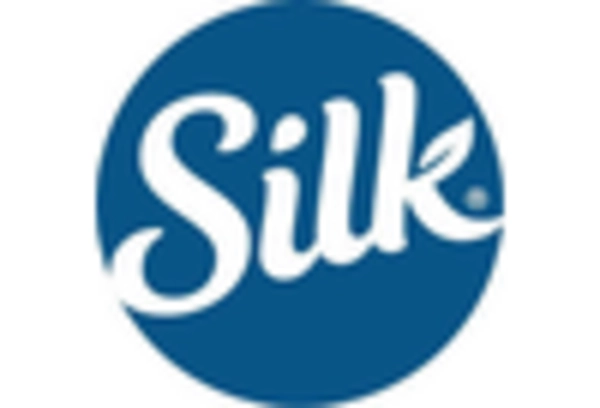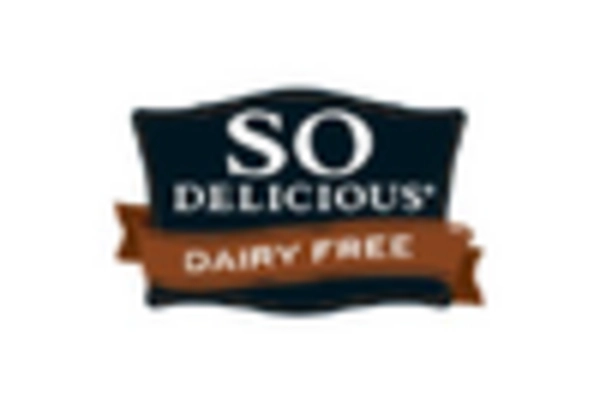Increased Retail Availability
The accessibility of plant based beverages is expanding rapidly across China, significantly impacting the market. Major retail chains and e-commerce platforms are increasingly stocking a diverse range of plant based products. This trend is supported by the rise of health food stores and specialty shops that cater specifically to the plant based-beverages market. In 2025, it is projected that retail sales of plant based beverages will grow by 25%, driven by enhanced distribution channels. This increased availability not only facilitates consumer access but also raises awareness about the benefits of plant based options. The plant based-beverages market is thus positioned for growth as consumers find it easier to incorporate these products into their daily lives.
Innovative Product Development
Innovation plays a crucial role in the plant based-beverages market in China, as companies strive to differentiate their offerings. The introduction of new flavors, formulations, and packaging solutions is becoming increasingly common. For instance, the incorporation of superfoods such as spirulina and chia seeds into beverages is gaining traction. This innovation is not only appealing to health-conscious consumers but also aligns with the growing trend of functional foods. In 2025, it is estimated that innovative products could account for up to 30% of the total market share. The plant based-beverages market is thus witnessing a dynamic shift, where creativity and health benefits converge to attract a broader consumer base.
Growing Environmental Awareness
Environmental concerns are becoming a significant driver for the plant based-beverages market in China. As consumers become more aware of the ecological impact of their choices, there is a noticeable shift towards sustainable products. The production of plant based beverages typically requires fewer resources compared to traditional dairy, leading to a lower carbon footprint. In 2025, it is anticipated that 40% of consumers will prioritize sustainability in their purchasing decisions. This growing environmental consciousness is prompting brands within the plant based-beverages market to adopt eco-friendly practices, such as sustainable sourcing and biodegradable packaging, further enhancing their appeal to eco-conscious consumers.
Rising Demand for Dairy Alternatives
The plant based-beverages market in China experiences a notable surge in demand for dairy alternatives. This trend is driven by a growing awareness of lactose intolerance among the population, which affects approximately 90% of adults in East Asia. As consumers seek healthier options, the market for almond, soy, and oat milk expands significantly. In 2025, the market value for dairy alternatives is projected to reach $3 billion, indicating a robust growth trajectory. This shift towards plant based beverages is not merely a trend but reflects a fundamental change in consumer preferences, as individuals increasingly prioritize health and wellness. The plant based-beverages market is thus adapting to meet these evolving needs, offering a variety of products that cater to diverse dietary requirements.
Influence of Social Media and Marketing
The role of social media in shaping consumer preferences cannot be underestimated in the plant based-beverages market in China. Influencers and health advocates are increasingly promoting plant based options, creating a buzz around these products. This digital marketing strategy appears to resonate particularly well with younger demographics, who are more likely to experiment with new beverages. In 2025, it is expected that social media campaigns will drive a 20% increase in brand awareness for plant based beverages. The plant based-beverages market is thus leveraging these platforms to engage consumers, educate them about the benefits of plant based diets, and ultimately drive sales.


